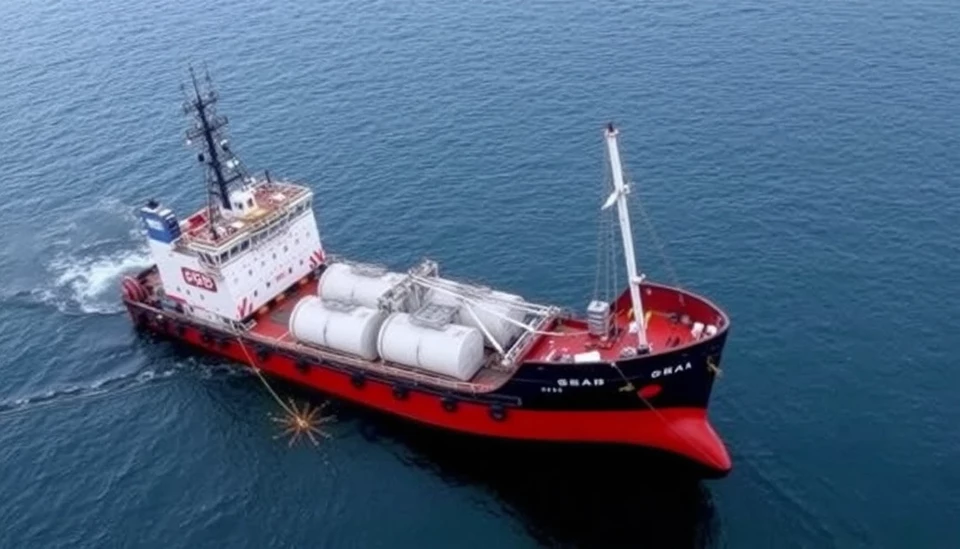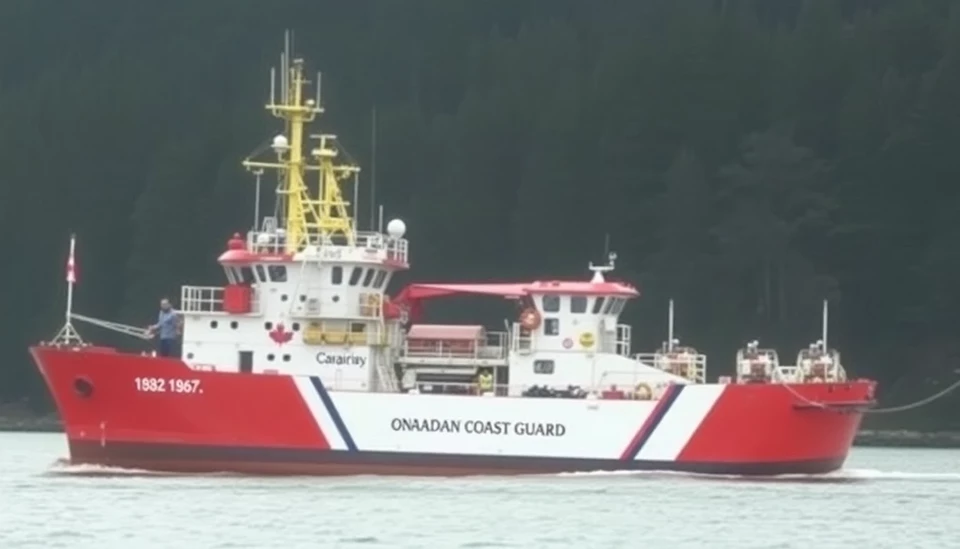
A successful operation to secure hazardous cargo from a cargo ship grounded off the coast of Canada has recently taken place, alleviating concerns of potential environmental damage and safety risks. The incident initially sparked fears due to the nature of the cargo, leading to increased actions from local authorities and marine safety groups.
The ship, identified as the MV Good Fortune, ran aground near a remote area of Nova Scotia’s coastline late last week as it encountered severe weather conditions. The vessel was reported to be carrying various types of dangerous materials, including chemicals that could pose a significant risk to the marine ecosystem if they were to leak into the water.
Local authorities swiftly mobilized a response team, including maritime safety experts and environmental agencies. The priority was to assess the integrity of the ship and the potential for any leaks. After extensive evaluations, it was determined that a complex extraction operation was essential to secure the hazardous materials before they could endanger the surrounding environment or impact local communities.
The operation involved specialized teams trained in hazardous material procedures, and it took several days to coordinate the logistics necessary for safely removing the cargo. Authorities utilized remote-operated vehicles and specialized equipment to ensure that the operation would cause minimal disruption and prevent any environmental fallout.
Status updates were provided to the public and local stakeholders throughout the process, highlighting the commitment of the teams involved to maintain transparency during the emergency. The retrieval operations were conducted meticulously, and the specialized teams worked around the clock to ensure the safety and efficiency of the undertaking.
Fortunately, the cargo was secured without any incidents. Following the retrieval, the ship's condition remained a focus, with inspections carried out to assess hull integrity and potential damage from the grounding. Authorities are currently evaluating the next steps for the MV Good Fortune as they prepare for any required salvage operations.
The successful handling of this situation has been praised by local officials and environmental advocates alike, underscoring the importance of preparedness and rapid response for incidents involving hazardous materials at sea. The incident serves as a reminder of the critical nature of maritime safety protocols and highlights the need for continuous monitoring of shipping practices to prevent similar occurrences in the future.
As cleanup operations are set to follow, the focus will now shift to ensuring the area is safe and free from any residual hazards. Local communities are being advised to remain vigilant as assessments continue, and further updates are expected in the coming days. Authorities have reassured the public of their prompt response mechanisms to safeguard both the environment and public health.
Overall, this incident reinforces the significance of having comprehensive safety measures in place, particularly in remote maritime areas where hazardous materials are transported. The positive response to this emergency has encouraged discussions about the implementation of stricter regulations surrounding the transportation of dangerous goods by sea.
With the immediate threat mitigated, attention now turns to broader implications for shipping regulations and environmental protections, ensuring that such incidents can be prevented in the future.
#HazardousCargo #MarineSafety #EnvironmentalProtection #NovaScotia #ShipGrounding #GoodFortune #SafetyOperations #EmergencyResponse
Author: John Harris
